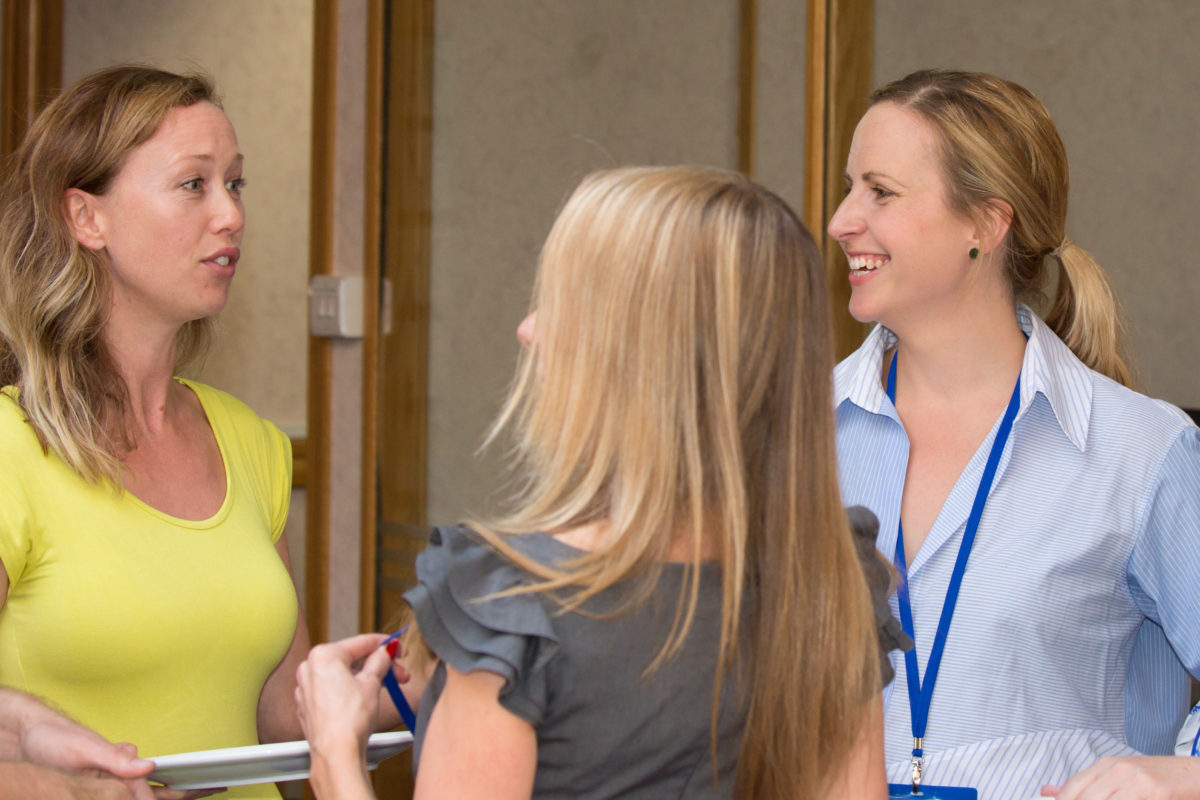
About We’ve
We are hiring!
We are a team of highly engaged psychologists with a fast-paced company culture full of people who love to continuously learn and deliver great service to our clients, improving the world of work.
If you enjoy being part of a very collaborative and mature team with lots of autonomy and freedom in how you work, you may enjoy this role.
Personal Assistant/Leadership Team Secretary – £25-35k
We are looking for an experienced PA/EA to work closely with our Leader in the Brighton office.
· Do you like to take control of situations?
· Are you always the one to organise events for your family and friends?
· Do you like seeing and feeling the impact of your support in company results?
· This role would suit someone positive, organised and attentive and with the ability to remain calm yet decisive in pressured situations.
· It is essential in this role to be dependable and deliver detailed information, sometimes without having specific instruction to do so
Office Assistant – £18-25k
We are looking for an energetic and determined individual to join the growing team at B&F and support the office manager across the scope of our operational and consulting work.
· Do you enjoy completing tasks and ticking things off your list?
· Are you energised by helping others?
· Do you like diversity in your work?
· This role would suit someone with a detailed and conscientious manner, and high levels of flexibility
· The role requires you to demonstrate rigor and organisation, and rewards you with diverse and engaging tasks
Due to the changeable nature of a client facing business, roles with Bailey & French need people that love a challenge and variety.
Qualifying Questions:
· What do others say you do well?
· Which parts of your current role energise you the most?
· What are you looking forward to this weekend?
· How do you stay motivated in challenging circumstances?
If you are interested in the role, please send your CV, covering letter, including answers the above questions, to dora@baileyandfrench.com by 28th November 2018.

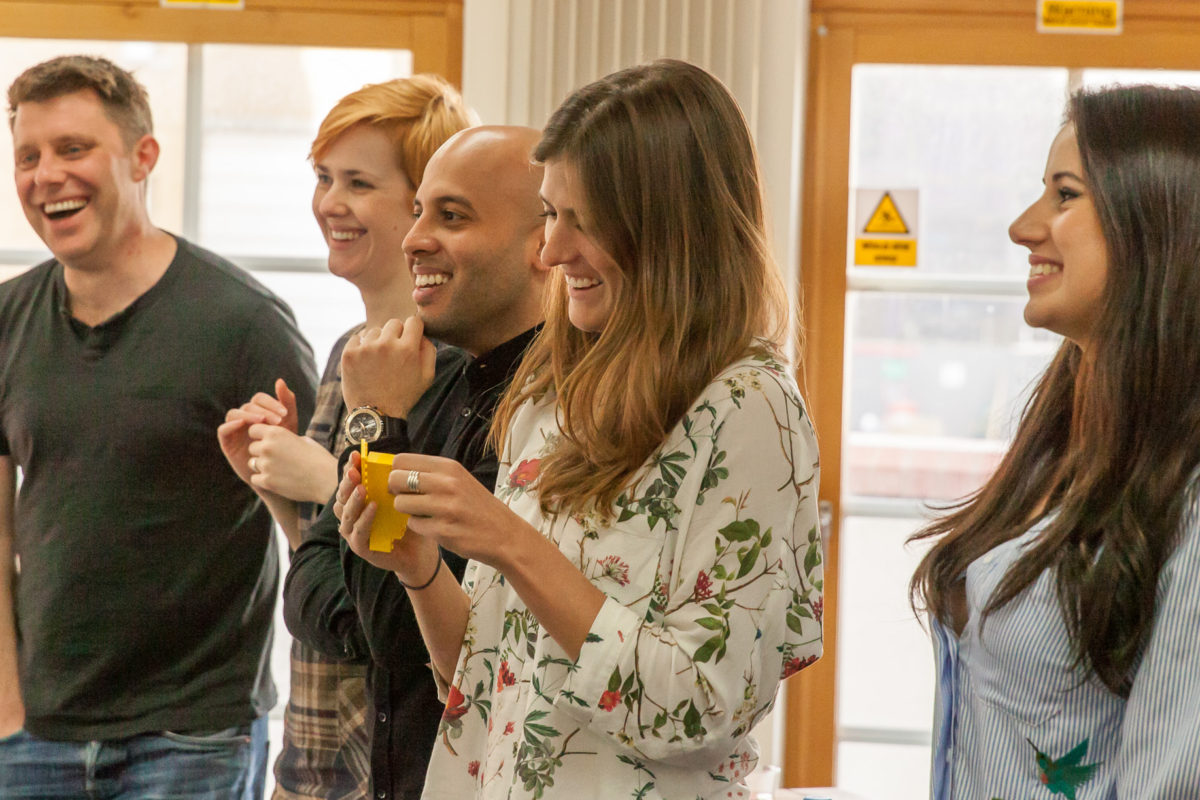
About How
Collaboration has become a 21st century buzzword, but are we really recognising its strategic importance? Solutions to complex problems can be achieved more quickly and competently if knowledge, skills and resources can be pooled and shared across our teams (CIPD, 2017). Don’t forget… not only does team collaboration enhance day-to-day productivity, it also helps to develop strong working relationships, critical for wellbeing.
Lets build effective collaboration
Before you read any further, take a second to reflect … are your people managers encouraging strengths-based collaboration? If ‘collaborative working’ simply means firing tasks and questions across the office or squeezing in brief (and often uninspiring) team meetings every now-and-again, the likely answer is no.
Due to intense pressures and continual deadlines, our stressed and overloaded managers may feel unable to connect with their team regularly and delegate tasks more thoughtfully. This means that jobs become more difficult and less enjoyable, performance slows, and motivation falls.
Help make collaboration simple for teams and managers
25% feel their strengths and weaknesses are overlooked by their managers and 40% of these people feel disengaged at work. How can we expect to achieve and succeed with such disconnected and unhappy teams?
Our strengths-focused Performance Motivation programme can help your people managers recognise the diverse range of strengths across their team. They will learn how to collaborate more intelligently by aligning tasks with strengths, skills and experiences as much as possible, to boost motivation and wellbeing and empower teams to achieve the best results.
We’ve developed a series of six 45-minute workshops, teaching people how to apply their strengths in different workplace scenarios. They can be delivered online for up to 500 people, face-to-face for smaller groups or in Train-The-Trainer format. That’s not all… our Performance Motivation Conversation Mat is a self-facilitating tool designed to open group discussions and tackle difficult topics as a team, with immediate impact on results.
Reignite that sense of ‘team’ now
Want more? Check out our article, drop Eleanor an email at ea@baileyandfrench.com or call us on 01273 830830.
Don’t hesitate any longer… start building collaborative teams.
Happy collaborating!
P.s. We’re looking forward to speaking at a British University’s Finance Directors Group Conference on 17th April, sharing some of our innovative tools and strategies that support people’s wellbeing and resilience in the workplace…come and take a look.


About Do
Are you missing the micro-action mindset?
Sign up for 5-days of free micro-actions
Read on to discover how to achieve the micro-action mindset. And how it can help.
We set ourselves goals and within a short space of time we’ve forgotten or failed them. Why does this happen? Most of the time we’ve tried to achieve too much, too quickly. Science has shown that a simple solution is to break down milestone targets into small ‘keystone’ or ‘micro-actions’ (Duhigg, 2012).
What does the research say?
By making one small change a day, we are 11 times more likely to succeed. Regularly completing micro-actions help to refine our abilities and generate momentum which lead us to those breakthrough moments (Markman, 2017).
If you find that you’re stuck in short-term firefighting mode and it’s making it difficult for you to prioritise responsibilities and focus attention on specific tasks, then taking a micro-action approach will provide that solution you’ve been looking for.
How does it work? It’s simple… by reducing our goals into more manageable chunks, we will no longer feel compelled to ignore the source of the problem (as we all do, due to its sheer size). Rather than falling to the bottom of the pile, the cause can be confronted little-by-little. Suddenly, even the most challenging task appears simpler. We become more motivated, able and driven to tackle it.
How can Bailey & French help?
Sign up for our free 5-day micro-action sampler and experience the power of the micro-action mindset.
Our 5 daily samples provide a taster of our popular Performance Motivation notebook, which is packed with micro-actions in the form of fun interactive activities, reflective questions and practical tasks. It’s also an excellent resource for People Managers with helpful prompts they can use in huddles, 121s and team meetings to initiate great performance conversations and inspire everyday action.
Don’t miss out on this great offer! Sign up for a working weeks’ worth of complimentary micro-actions and start achieving your goals efficiently.
Get in touch now…
For more information about our products and workshops, email Eleanor at ea@baileyandfrench.com or call 01273 830830 for a slot in the diary.
Don’t forget, for useful hints and tips, join our ‘Bailey & French- Performance Motivation’ group on LinkedIn today!
P.s. We’re looking forward to speaking at a British University’s Finance Directors Group Conference on 17th April, sharing some of our innovative tools and strategies that support people’s wellbeing and resilience in the workplace…come and take a look.

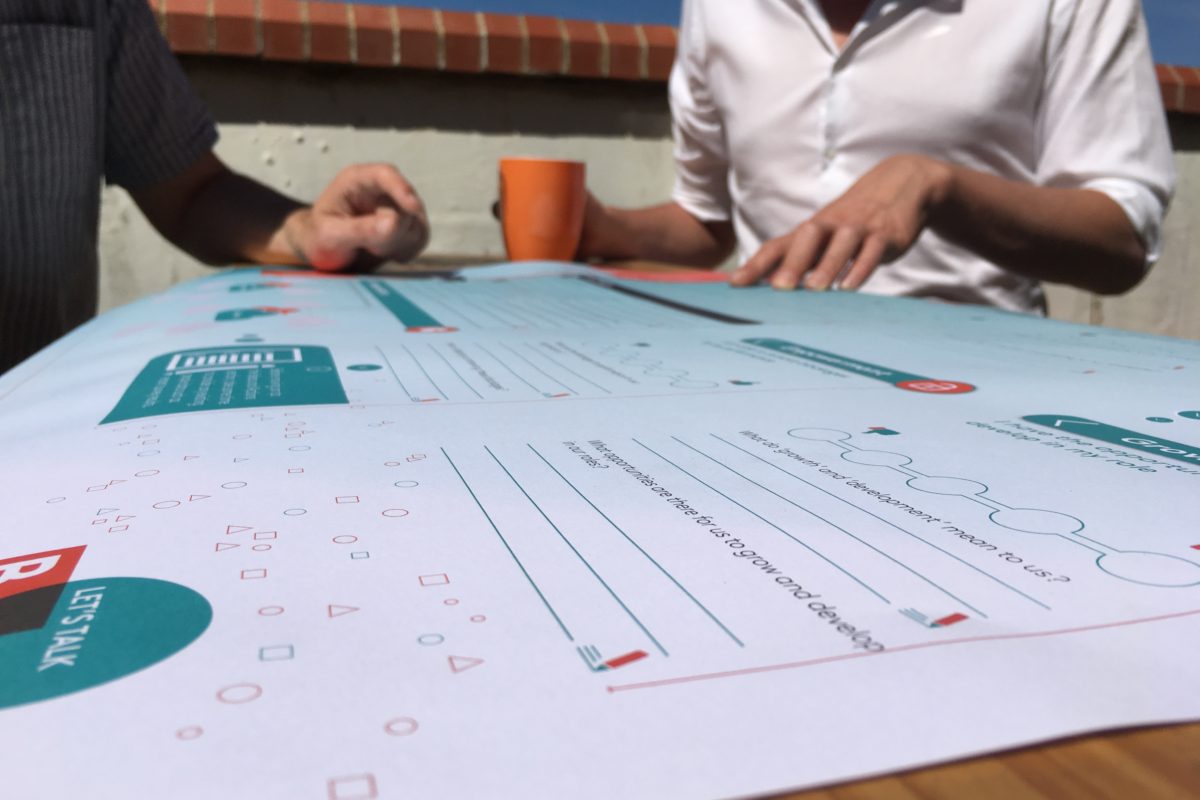
About Overcoming
We all know team performance conversations are vital, but where do we start? How can we understand and overcome performance blockages without the need for face-to-face training?
Budgets are always shrinking, forcing team training and development courses further down the priority list. Faced with these economic pressures, managers still need increased support to engage with their team and ensure they are providing them with opportunities to flourish and thrive.
In an attempt to minimise the consequences of training cuts, we still feel duty-bound to offer ‘solutions’. We can be expected to pick up the slack by:
1. Offering cheaper training solutions to smaller populations (…which are unlikely to roll out effectively)
or …
2. Designing budget-friendly programmes in house (…adding yet another task to our already jam-packed to-do lists)
Here at Bailey & French, we can offer an economical, practical solution. We have developed a simple conversation mat to evolve performance conversations for teams. This self-facilitating and energising tool is designed around the six core fundamentals for positive performance and is an ideal activity for team away days or could fit easily into a lunch break.
At just £5 per head (approx.), this tool eliminates the need for face-to-face training and encourages teams to discuss how they can improve their own performance. For more information, visit our online shop and help your managers now!
If you would like to discuss further, or would prefer one of our consultants to facilitate, then drop us an email now or call us on 01273 830830 for a slot in the diary.
P.s. We’re looking forward to speaking at a British University’s Finance Directors Group Conference on 17th April, sharing some of our innovative tools and strategies that support people’s wellbeing and resilience in the workplace…come and take a look.

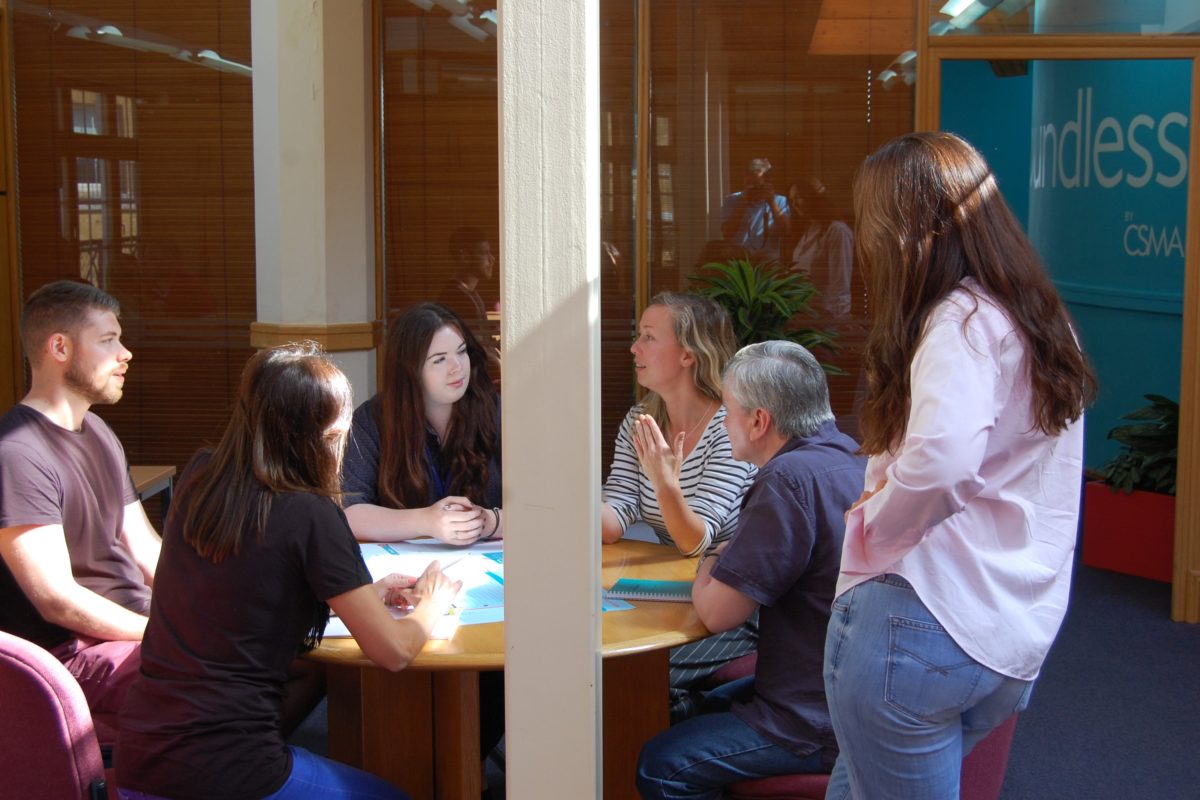
About Setting
January 2018 is the perfect time to set meaningful and motivational goals, for yourself and for your team as we know motivation drops in every 24hrs let alone over holidays. Setting goals and taking consistent micro actions will result in successful macro-change. Our second newsletter of the month explores the benefits of goal setting and how best to approach it.
Whilst a positive, linear relationship has been identified between stimulating goals and workplace performance, goals are personal and goal setting should not be used as a one-size-fits-all action for motivation. If you’re interested in learning more about the important relationship between setting goals and task performance and positive effects on wellbeing, read this evidence based research from the CIPD.
Many People Managers have adopted a relaxed, more conversational approach towards performance and have mistakenly done the same for goal setting. However, this does not provide individuals with the intrinsic motivation they need to perform to their absolute best. This often leaves people feeling disconnected and makes it much harder for them to flourish at work. It also makes it harder to ensure that all team members are successfully taking accountability for their performance.
Therefore, it is crucial that we all dedicate time to set energising goals and start the year feeling committed, valued and positive! Let’s help our already stressed-out managers with a workshop that can get everyone through goal setting rapidly in January, when it matters the most:
• Easy, short and focused 45-minute workshops
• Online for up to 200 people at once or face to face for smaller groups or TTT options
• Available at flexible times to cover all time zones
• Goals aligned with your role outcome and strengths to ensure they are meaningful and motivational
• Increasing everyone’s accountability for setting goals themselves rather than all on managers shoulders
“If you walk by any person’s desk and ask them about their goals, they now have a clear one sentence outcome (purpose) they can share with you, which aligns to our vision – this has been 100% successful in reach.” (Micheal, Director of Operations at ABN AMRO)
Call us now on 01273 830830 for workshop availability and costs, or email Eleanor at ea@baileyandfrench.com
View details about our further performance workshops and read our article on goal setting for some useful tips.

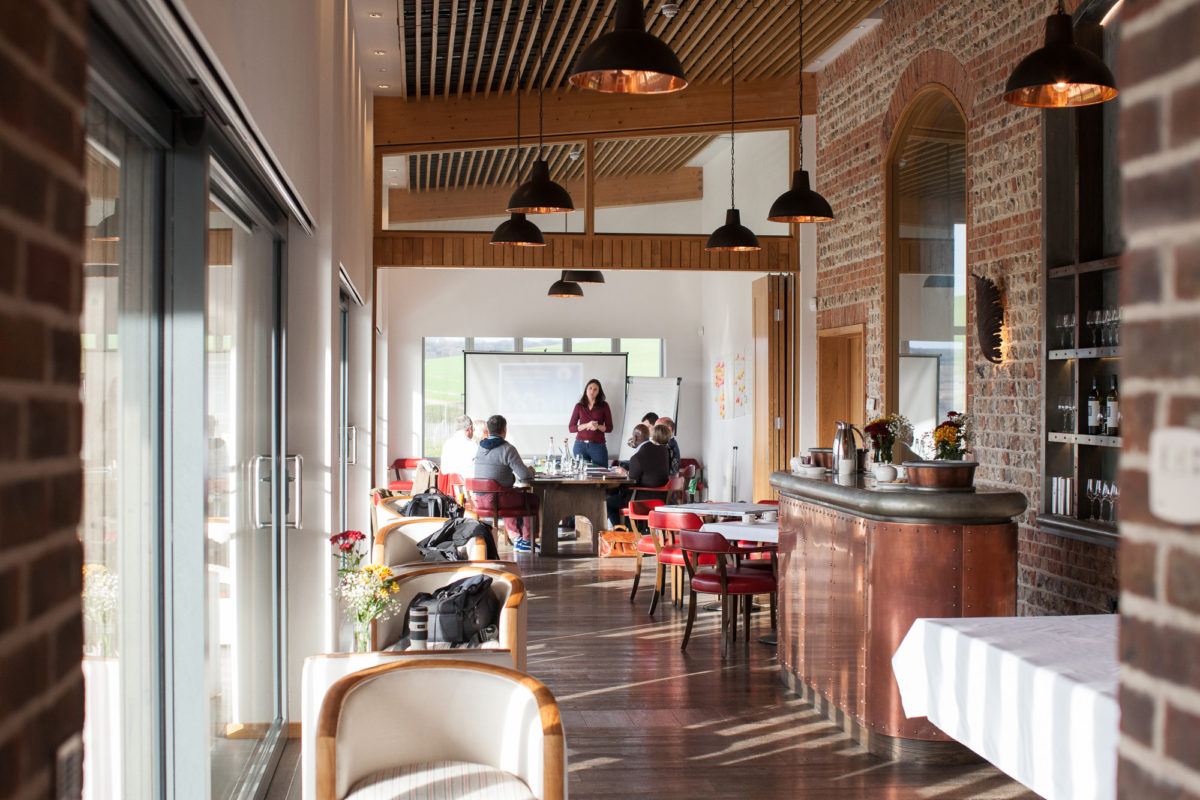
About Upskilling
The challenge with innovative HR practice is that when we want to implement something new there can be little evidence – from either researchers or our peers – to support the business cases we need to put together. So, we end up doing the same things over and over again – even when we know that they don’t really work anymore.
If you’re looking to do something different around your performance conversations this year, you might be interested to read this research from the CIPD. Across three civil service organisations, they found that a focus on strengths made a measurable difference to the experience and effectiveness of performance discussions; even just a half-day of training for managers had a positive impact on both learning & development and performance of their team members.
To harness similar benefits, you might be interested in our Leading Self workshop – a half-day session to help all people explore who they are at their best, and how they can enjoy and excel in their work more. Through spotting strengths ‘live’ in each other, they develop self- and other-awareness far beyond psychometric tests.
Building on this, our Leading Others workshop is designed for managers, developing skills in coaching and applying a strengths framework to day-to-day challenges, such as underperformance. As well as ensuring that formal performance conversations are more effective, this helps managers positively motivate their people everyday.
To find out more, click here for details, give us a call on 01273 830830 or drop us an email at info@baileyandfrench.com.


About Inspiring
In the final of our series of articles exploring strengths application in the workplace, Grace Walsh (one of the Bailey & French team) shares the practical ways we can apply strengths to build relationships and inspire our clients.
Over the years, we have helped countless people flourish and thrive in their roles by helping the organisations they work in incorporate a strengths focus in performance conversations. Once the power of a strengths approach to boost performance and wellbeing is understood and experienced, people soon realise the opportunity to harness this power when building relationships with clients.
For example, during our Strengths Discovery sessions, as well as getting a better understanding of our own strengths, we also develop skills in spotting strengths in others. Through a series of questions, we learn to tune in to the verbal and non-verbal clues people elicit when they talk about their strengths. Then, there is the light bulb moment! There’s no reason why we can’t we use these same skills to get to more deeply understand and more effectively support our clients.
So, here are a few ways we can use our strengths spotting skills to build trusting, long-lasting relationships with our clients.
1) Ask questions that are likely to get your clients talking about their strengths. Then, strength spot and give feedback about when you saw them ‘light up’. For example, “It’s clear you are fantastic at… and it’s true strength of yours. You really lit up when you mentioned ….!” We love to talk about what we are passion about and energised by, so conversations that focus on what we love create positive emotions and feel good. This exercise also shows you are tuned in and actively listening to what they are saying. It brings the conversation to a different level of understanding and appreciation.
2) Tailor how we communicate. Understanding our client’s strengths, we can subtly shift the way we communicate and therefore influence more effectively. For example, someone who has an Analytical strength will enjoy the detail. A Reflector will want to go away and consider the information before making any decisions, so sending information before a meeting ensures they can mentally prepare. In contrast, a Creative or Strategic thinker will want the big picture, higher level information and get bored by too much information. I’ve been in that situation myself. Either, I’ve not got the buy in from a client because I wasn’t ‘armed’ with enough information or I lose them half way through because I spend too much time on the small details.
3) Talk about our own strengths and, also be honest about our weaknesses. We often don’t like to expose our weaknesses, and try and hide them from the world! The reality is, we all have strengths and weaknesses. Emotional intelligence and authentic leadership is about being confident in who we are, truly understanding our strengths/weaknesses and how we use/make them irrelevant day to day. Being authentic, and being what some may view as vulnerable, is a key ingredient for building trust. Be brave, take the first step forward! Clients are often looking for the chance to be open and to talk about what they love, what they fear and ultimately what they need from us. Our openness, authenticity and honesty gives them permission to take this chance.
These are a few ways we can use our skills in strength spotting to support and nurture relationships with our clients. We’d love to hear your thoughts and insights too!
To help organisations build awareness around strengths and how to apply that knowledge, we’ve developed a series of six 45-minute workshops. Click here for the range of workshops. Held via an online learning platform, team members can dial in from wherever they are.
We’ve posted articles over the last couple of weeks, exploring the application of strengths in real work situations, from either a theoretical, business or personal perspective. Starting with the article ‘So, we know our strengths – now what?’ we explored:
- Building on our strengths
- Being our Best
- Making our goals meaningful
- Growing our careers
- Collaborating effectively
- Inspiring our clients
Follow us on LinkedIn to make sure you don’t miss them, and for more information drop us an email or give us a call on 01273 830830.
Grace Walsh


About Are
In the next of our articles on applying strengths in the workplace, we look at working together:
What does collaboration mean to you?
For many of us, it comes in the form of sitting in meeting rooms talking about things that are unnecessary or irrelevant, potentially with the wrong people. Or shouting questions across an open plan office (a bad habit of mine!). But I’m pushing for a different concept of collaboration – one that draws on the best of each person and leaves everyone feeling valued and happy. That is, strengths-based collaboration.
Everyone has strengths: things they love doing and are great at; and when we recognise what these are and enable people to spend more time doing these things, we boost their wellbeing and results. Although it may seem obvious, the reality is that most people don’t take the time or effort to collaborate intelligently.
I believe that this comes from a combination of two things: being too busy to be thoughtful about the delegation of each task; and our mirror-imaging bias – the belief that others view things through the same lenses and viewpoints as us, and therefore love and despise the same tasks as us. The reality, of course, is that teams are made up of people with different personalities and strengths, who enjoy and thrive doing a range of different tasks.
So, here are three simple steps to build more intelligent and positive collaboration in your teams:
1. Discover your strengths, and the strengths of the people around you (check out how you can do this here)
2. Review work currently going on (or coming up), and agree how to collaboratively manage it to play to peoples strengths, skills and experience as much as possible
3. Empower every person to be confident in calling out opportunities where the team are/aren’t playing to strengths, creating accountability and sustainability
Playing to our strengths allows us to get into flow more easily, perform better and enjoy our work more. It is also clear that the best performing managers align talents with projects and emphasise strengths over seniority when moving and managing talent2 (read my last article for more on this). By understanding the strengths of the people around us, we can delegate work more intelligently, weighing up skills, knowledge and strengths to get the best result whilst boosting motivation and happiness.
To help individuals and organisations use their strengths most effectively, we’ve developed a series of six 45-minute workshops teaching people how to apply them in different workplace scenarios – find out more here.
Happy collaborating 😊
2 Clifton & Harter, 2003

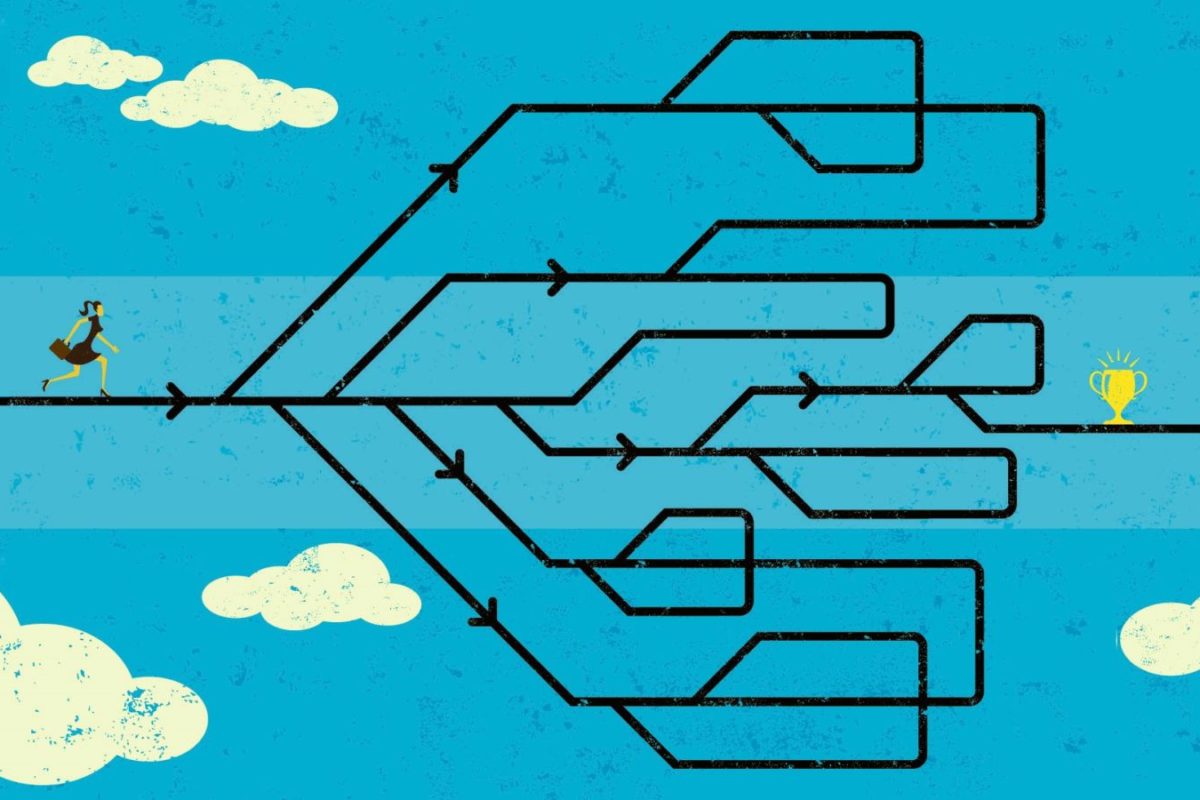
About How
Next up in our series of articles exploring the application of strengths, we look at growth and learning:
How would you rate the statement: “I have the opportunity to grow and develop in my role”?
This leads us to the even more important question of what ‘growth’ and ‘development’ mean to us. Traditionally, and perhaps still for a lot of people, this means vertical progression. Moving up the ranks of corporate hierarchy with a job title reflecting seniority. However, the reality is that this type of vertical progression is not right or realistic for everyone all the time.
What if you love your organisation and don’t want to leave, but there are no upward opportunities available?
What if that ‘next’ role just isn’t for you because, come to think of it, you don’t want to be a manager or take on the type of role or responsibility that comes with it?
I think it is safe to say that people are more frequently veering from this traditional route of career progression, opting for different opportunities to grow and develop themselves. A recent survey suggests that, on average, Millennials (people born in the broad timeframe from the late 70s to 00s) expect to change jobs more than every three years, making career changes 15-20 times in a lifetime. In line with this desire for non-linear growth, I wanted to share some great ideas to consider in terms of how we can stretch ourselves, find more meaning and satisfaction, and be at our best both within our current roles/organisations and outside.
As we think through the below ideas, it’s worth considering not just the knowledge and skills required, but what our core strengths are, and how we can play to them. Some ideas are…
• Develop ‘mastery’ in your role, or an aspect of it (see more on this here)
• Mentor others
• Bring variety into your role by collaborating with other departments on projects
• Gain knowledge, skills and experience outside your organisation – i.e. through volunteering, qualifications, courses or a side project
• Identify an opportunity to carve out a new role
• Move across into a different area of the business
• Broaden your horizons to other companies and industries
Understanding and prioritising our growth and development in line with our strengths and interests is the most important thing, as this defines whether intrinsically we will be happy, engaged and able to be our best in our future work. This is because being able to use our strengths for more hours each day leads to greater happiness, optimism, gratitude, performance, and meaning, and lower stress, sadness, depression and anxiety2.
So, my challenge to you is this: when thinking about your career growth over the next day, week, month or year, first-and-foremost figure out ‘what are my strengths?’. Once you know your strengths, stretch and challenge yourself by playing to them in ways that allow you to be at your best and be happy.
To help individuals and organisations use their strengths most effectively, we’ve developed a series of six 45-minute workshops teaching people how to apply them in different workplace scenarios – find out more here.
1 2012 Future Workplace LLC, http://futureworkplace.com
2 Asplund, J. 2012; Harzer & Ruch 2012; Kashdan, Julian, Merritt, & Uswatte, 2006; Steen, Seligman, Peterson, & Park 2005


About Three
In the next of our series of articles exploring the application of strengths, we look at goal-setting:
It’s that time of year when our thoughts are turning to reflection: Did we hit our KPIs? Did things go as we expected? And did we achieve the things we wanted to, both inside and outside work?
Hot on the heels of this contemplation – or, most often, in parallel – we’re also looking forward. In our non-work lives that means new year’s resolutions, frequently broken within a few weeks of grim January days. In our organisations, we try for something with more longevity, but they can end up being a bit ‘flat’. How can we make them really motivating instead?
Ensure your goals serve your role
It sounds silly, but make sure your goals are relevant to your role. A good starting point is to write down in just one sentence what your job is – it’s much harder than it sounds, and can be a useful indicator of how much clarity you have over what you’re in post to achieve. Avoid being drawn into goals that don’t serve your role – and look at redefining your role if the things you need to get done don’t seem to fit.
Align your goals with your strengths
By drawing your strengths into your goals, you make them much more inspiring. For example, if I had a strength around supporting others, I might choose to set goals around working collaboratively, learning new skills in order to share colleagues’ tasks, or simply ‘helping’ my organisation. Even the words you choose can make your goals more motivating.
Make your goals SMART+
We’ve all heard of SMART goals, but we can push them further. By making them challenging and positive, as well as SMART, we make them more energising. Rather than ‘Reduce call waiting times on the helpline by 10% by the end of the year’, we might go for ‘Create a great online help resource by June, so that clients can access support more efficiently’. The outcomes are the same – less pressure on the helpline and happier customers – but by making a positive and challenging solution part of the goal it becomes much more driven.
To help individuals and organisations use their strengths most effectively, we’ve developed a series of six 45-minute workshops teaching people how to apply them in different workplace scenarios, such as goal setting – find out more here.
Over the next two weeks, we’ll be posting articles exploring each of these scenarios from a theoretical, business or personal perspective.
